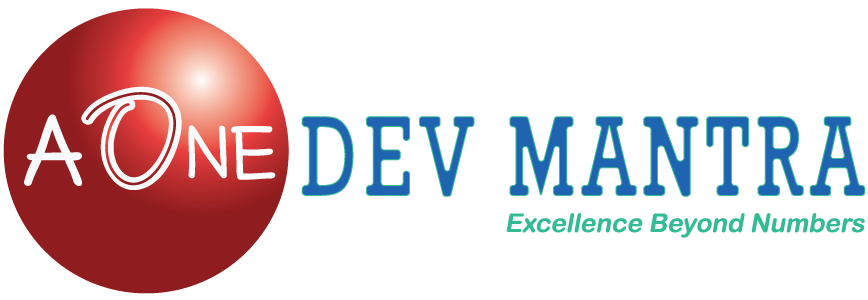INCOME TAX REGULATORY UPDATES
Higher rate of withholding tax on payments to non-filers of tax returns – Central Board of Direct Taxes (CBDT) issues circular regarding use of compliance check functionality u/s 206AB & 206CCA of Income-tax Act, 1961
|
Existing provision |
Amendment vide Finance Act 2022 |
|
Provision relating to higher TDS is not applicable on following payments: Section 194B – Winnings from lottery / crossword puzzle Section 194N – Payment of cash exceeding Rs.1 Crore by bank / co-operative society / post office |
In addition to the existing, the provision relating to higher TDS is not applicable on following payments: Section 194IA – Payment on transfer of immovable property Section 194IB – Payment of rent by certain individuals / Hindu Undivided Families (HUF) Section 194M – Payment of works contract / commission / brokerage / fee for technical services by individuals / HUFs > Rs.50 lakh a year Section 194S – Payment in lieu of transfer of virtual digital asset (VDA) |
|
Condition for default in filing tax return for last 2 years has been reduced to last 1 year. Also, monetary limit of Rs.50,000 shall apply for 1 year instead of 2 years. |
|
New logical functionality for FY 2022-23
• A list of specified persons is prepared as on the start of FY year 2022-23, taking FY 2020-21 as the relevant year (since the due date for filing tax return for FY 2020-21 has expired). List contains names of the taxpayers who did not fiIe tax return for FY 2020-21 and have aggregate of TDS and TCS of Rs.50,000 or more in the FY 2020-21
• During FY 2022-23, no new names are added in the list of specified persons / defaulters.
This is a taxpayer friendly measure to reduce the burden on tax deductor and collector of checking PANs of non-specified person / defaulter more than once during the FY
• If any specified person / defaulter files a valid return of income (filed and verified) for FY 2020-21 during the FY 2022-23, his name would be removed from the list of specified persons / defaulters (on the date of filing the valid tax return during FY 2022-23)
• If any specified person / defaulter files a valid tax return (filed and verified) for FY 2021-22, his name would be
removed from the list of specified persons / defaulters. This would be done on the due date for filing of the return of income for FY 2021-22 or on the date of actual filing of valid return (filed and verified), which ever is later
If the aggregate of TDS and TCS, in the case of a specified person / defaulter, in the FY 2021- 22 < Rs.50,000, his name would be removed from the list of specified persons / defaulters. This would be done on the first due date u/s 139(1) falling in the FY 2022-23. For the FY 2022-23 this due date is 31 July 2022
• Belated and revised TCS and TDS returns of the relevant FY filed during the FY 2022-23 would also be considered for removing persons from the list of specified persons / defaulters on a regular basis
• The deductor / collector may check the PAN in the functionality at the beginning of the FY. After that, he is not required to check PAN of non-specified person during that FY
Updated Income Tax Return (ITR) u/s 139(8A) of Income-tax Act – CBDT notifies Form ITR-U & manner to furnish the same
Background – Section 139(8A) of the Income-tax Act, 1961
The Finance Act, 2022 has introduced a new provision for filing ‘Updated ITR’ u/s 139(8A) of the Income-tax Act within 2 years from the end of relevant Assessment Year (AY) on payment of additional tax. The scheme has been introduced with the objective to provide an opportunity for voluntary compliance by taxpayers in order to rectify errors in the last valid ITR filed and to reduce litigation. The Central Board of Direct Taxes has now notified a new rule (Rule 12AC) containing the new tax return form and the manner to furnish such Updated ITR.
It is relevant to note that Updated ITR cannot be filed in following cases:
• If it is an ITR to report Loss, or
• It decreases the tax liability reported in Original ITR u/s 139(1), Belated ITR u/s 139(4) or Revised ITR u/s 139, or
• It results in refund or increases refund as per Original ITR u/s 139(1), Belated ITR u/s 139(4) or Revised ITR u/s 139, or
• If search / survey / requisition has taken place
• If any updated ITR under the same provision [139(8A)] has already been filed for that year, or
• If any proceeding for assessment / reassessment / recomputation / revision of income is pending or has been completed for the relevant year, or
• Assessing Officer has communicated to the taxpayer information regarding money laundering / black money / benami transactions for the relevant year, or
• Any prosecution proceedings have been initiated against the taxpayer for the relevant year, or
• By any other category of taxpayer(s) as may be notified by CBDT
Salient Features
• In the form for Updated ITR, taxpayers are required to declare the purpose for filing as well as the amount of income to be taxed in the updated return.
• Taxpayers are not required to provide a break up of the income reported in the ITR(Updated).
3. Taxpayers can now use the new form ITR-U to file the updated income tax return for financial years 2019-20 and 2020-21.
• Certain taxpayers are required to file the Updated ITR electronically using a digital signature or an electronic verification code. The taxpayer has to file the ITR Forms of the relevant assessment year and submit it along with the new ITR-U.
• The ITR-U has to be filed within two years of the end of the relevant assessment year. For doing this, taxpayers are also required to provide reasons for updating the ITR. According to Tax2Win, the reasons for filing ITR-U may be many, including previous return not filed, income not reported correctly , wrong heads of income choses, reduction of a carried forward loss etc.
• A taxpayer has to pay an additional 25 percent tax and interest due if updated ITR is filed within a year (12 months) from the end of the relevant assessment year.
• A taxpayer has to pay an additional 50 percent tax and interest due if updated ITR is filed after a year (12 months) but before 24 months from the end of the relevant assessment year.
• The return will be considered inval- id if the taxpayer fails to pay the additional taxes.
• According to Tax2Win, you cannot file ITR-U if the overall tax due is to be reduced and losses to be offset against income, for refund or for increase in refund amount.
• A taxpayer can file an Updated ITR only once for a Financial Year.
|
Taxpayer |
Existing time limit to file Original ITR u/s 139(1) |
Existing time limit to file Belated ITR u/s 139(4) or Revised ITR (5) (unless assessment completed earlier) |
Additional time limit u/s 139(8A) – Within 24 months of end of relevant AY |
|
Individual |
31st Jul of relevant AY |
Another 5 months (i.e., 31st Dec of relevant AY) |
Another 27 months (i.e., total 32 months from due date of Original ITR) |
|
Company / Auditable case |
31st Oct of relevant AY |
Another 2 months (i.e., 31st Dec of relevant AY) |
Another 27 months (i.e., total 29 months from due date of Original ITR) |
|
Transfer Pricing cases |
30th Nov of relevant AY |
Another 1 month (i.e., 31st Dec of relevant AY) |
Another 27 months (i.e., total 28 months from due date of Original ITR) |
|
Instance |
|||
|
• 31st Dec of relevant AY till • 12 months from end |
• 12 months from end of relevant AY till • 24 months from end of relevant AY |
||
|
In case ITR is not furnished earlier |
25% of tax & interest due on additional income |
50% of tax & interest due on additional income |
|
|
In case ITR is furnished earlier (Original, Belated or Revised) |
|||
New Rules 114BA and 114BB inserted by CBDT
Pursuant to above, the Government has now provided some additional situations in which (a) obtaining PAN is mandatory, and (b) quoting and authenticating PAN is mandatory, as below.
|
S no. |
Transactions |
New Rule 114BA inserted |
New Rule 114BB inserted |
|
1 |
Cash deposit(s) aggregating to Rs. 20 Lakh or more during a year in 1 or more accounts of a taxpayer with banks |
|
|
|
2 |
Cash withdrawal(s) aggregating to Rs.20 Lakh or more during a year in 1 or more accounts of a taxpayer with banks |
||
|
3 |
Opening of current account / cash credit account with banks |
INSTRUCTION NO. 01/2022, DATED 11-05-2022
CBDT issues instructions for AOs to implement SC’s ruling upholding validity of old reassessment notices
Editorial Note : Recently, the Supreme Court has upheld the validity of section 148 notices issued under old provisions and asked Assessing Officers to proceed with the reassessment following new provisions.
To implement the judgment of the Supreme Court in a uniform manner, the Central Board of Direct Taxes (CBDT) has issued instructions that shall be required to be taken into consideration by AOs.
NOTIFICATION F.NO. 225/81/2022/ITA-II, DATED 11-05-2022
CBDT issues guidelines for compulsory selection of ITRs for Complete Scrutiny during FY 2022-23
Editorial Note : The CBDT has issued guidelines for compulsory selection of returns for Complete Scrutiny during the financial year 2021-23. Income tax authorities are directed to select the cases based on these guidelines by 30-06-2022.
NOTIFICATION NO. 51/2022/ F. NO. 370142/4/2021-TPL, DATED 09-05-22
CBDT amends various forms applicable for registration/ approval/statement under Sec. 10(23C), 12AB, 35 and 80G
Editorial Note : The Central Board of Direct Taxes (CBDT) has amended various forms applicable for applicants seeking registration/approval under Section 10(23C), 12AB, 35, 80G and filing of statements of donations & issuing the certificate to donors under Section 35 and 80G. The board has amended Forms 3CF, 10A, 10AB, 10BD, and 10BE.
NOTIFICATION NO. 52 /2022/F. NO. 370142/4/2021-TPL, DATED 09-05-2022
CBDT deauthorizes CIT (exemption), Bengaluru to pass registration orders for trusts, institutions, and funds
Editorial Note : The CBDT has de-authorized the Commissioner of Income Tax (Exemption), Bengaluru, for receiving applications and passing an order for provisional registration or registration or provisional approval or approval for various trusts, institutions, and funds. Now only the Director of Income Tax (Centralized Processing Centre), Bengaluru is authorized to do so.
CIRCULAR NO. 9 OF 2022, DATED 09-05-2022
CBDT issues guidelines clarifying availability of Sec. 10(23FE) exemp- tion in different scenario
Editorial Note : The CBDT has issued Circular no. 9 of 2022 which provides guidelines for computation of exemption available under section 10(23FE) in the hands of Abu Dhabi InvestmentAuthority (ADIA), sovereign wealth funds (SWF), and pension funds (PF). Earlier, the board notified Rule 2DCA for computation of investment and exempt income under section 10(23FE).
NOTIFICATION NO. 50/2022/F. NO. 370142/2/2022-TPL, DATED 06-05-2022
CBDT notifies Rule for computation of minimum investment & exempt income of specified person u/s 10(23FE)
Editorial Note : FA 2020 has inserted a new clause (23FE) in section 10 to provide an exemption to a wholly-owned subsidiary of the ADIA, a sovereign wealth, and a pension fund. The exemption is provided in respect of any income of the specified person like dividend, interest, or long-term capital gains arising from an investment made by it in India. The CBDT has notified Rule 2DCA for computation of such investment and exempt income.
NOTIFICATION NO. G.S.R. 339(E), DATED 05-05-2022
CBDT notifies revised forms for filing of an application to obtain ‘Advance Ruling’
Editorial Note : The Finance Act, 2021 had constituted a Board of Advance Ruling to provide an alternative method of providing prompt advance ruling to the taxpayers. Consequently, the CBDT has amended Rule 44E which provides for the filing of an application for advance ruling. The board has substituted Form No. 34C to Form No. 34EA.
RECENT JUDICIAL RULINGS ON INCOME TAX
SECTION 2(15) OF THE INCOME-TAX ACT, 1961 – CHARITABLE PURPOSE
Objects of general public utility : Where assessee trust, formed with an objective of generating and propagating innovative ideas on housing, undertook construction activities and took funds for same and said activity became its principle activity and there was no nexus between such activity carried on and objects of assessee that could constitute an activity incidental to attainment of objects of society, assessee could not be allowed exemption under section 11 – Zilla Nirmiti Kendra v. ACIT, (Exemptions) – [2022] 137 taxmann.com 349 (Bangalore – Trib.)
Objects of general public utility : Where in case of assessee trust, except for providing a bar room, all
other activities of providing swimming pool facilities for aquatic events and training and facilities for other sports and squash, billiards and table tennis etc., were activities of carrying out object of general public utility, assessee trust was a charitable trust within meaning of section 2(15), hence, entitled to exemption under section 11 – Navi Mumbai Sports Association v. ADIT (Exemption) – [2022] 137 taxmann.com 347 (Mumbai – Trib.)
SECTION 37(1) OF THE INCOME-TAX ACT, 1961 – BUSINESS EXPENDITURE – ALLOWABILITY OF
Repairs : Where assessee, a franchise of ‘Domino’s Pizza’ and ‘Dunkin Donuts’, had take on lease bare shell premises of various entities and made extensive modifications in premises, considering nature of business of assessee and modifications done in leased premises taken by assessee for purpose of business, expenditure did not create any new asset, and, thus, expenditure on renovation and repairs of stores assumed character of revenue expenditure squarely fell under section 37(1) – Deputy Commissioner of Income-tax v. Jubilant Foodworks Ltd. – [2022] 137 taxmann.com 345 (Delhi – Trib.)
ESOP expenditure : Discount on issue of Employees Stock Options is allowable as deduction in computing income under head “Profit and gains of business” – Deputy Commissioner of Income-tax v. Jubilant Foodworks Ltd. – [2022] 137 taxmann.com 345 (Delhi – Trib.)
Expenditure on production of telly serials : Where assessee is involved in production and exhibition of tele-serials, expenditure incurred for production of tele-serials cannot be considered as capital in nature, because it does not give enduring benefit to assessee and is definitely revenue in nature – Assistant Commissioner of Income-tax v. Radaan Media Works (I) Ltd. – [2022] 137 taxmann.com 348 (Chennai – Trib.)
SECTION 40(a)(ii) OF THE INCOME-TAX ACT, 1961 – BUSINESS DISALLOWANCE – TAXES
Education Cess : Provision of section 40(a)(ii) does not include “cess” & consequently, “cess” whenever paid in relation to business is allowable as deductible expenditure – Deputy Commissioner of Income-tax v. Jubilant Foodworks Ltd. – [2022] 137 taxmann.com 345 (Delhi – Trib.)
SECTION 56 OF THE INCOME-TAX ACT, 1961 – INCOME FROM OTHER SOURCES – CHARGEABLE AS
Gifts : Where assessee a retired professional cricketer received ex-gratia payment from BCCI which was claimed as capital receipt not chargeable to tax and AO brought said sum to tax under section 56(2)(vii) without ascertaining whether registration of BCCI was restored under section 12AA for relevant assessment year or not, in such a case matter was to be remanded to AO – Sunil Bandacharya Joshi v. Deputy Commissioner of Income-tax – [2022] 137 taxmann.com 343 (Bangalore – Trib.)
SECTION 92C OF THE INCOME-TAX ACT, 1961 – TRANSFER PRICING – COMPUTATION OF ARM’S LENGTH PRICE
Adjustments – Administrative services : Where assessee failed to furnish even an iota of evidence to demonstrate that administrative services were actually rendered by AE and Assessing Officer determined ALP of administrative services fee at nil, no useful purpose would be served in restoring matter back to Assessing officer for reconsidering said issue – Akzo Nobel India Ltd.
v. Additional Commissioner of Income-tax – [2022] 137 taxmann.com 369 (Delhi – Trib.)
SECTION 127 OF THE INCOME-TAX ACT, 1961 – POWER TO TRANSFER CASES
Assessee has no right to choose his AO; Order u/s 127 for transfer of a case from AO to another is more an administrative order that a quasi judicial order – Kamlesh Rajnikant Shah v. Principal Commissioner of Income-tax – [2022] 138 taxmann.com 59 (Gujarat)
SECTION 145 OF THE INCOME-TAX ACT, 1961 – METHOD OF ACCOUNTING
Where affidavit filed by assessee-trust before Tribunal revealed that assessee challenged method of accounting changed by revenue, submission advanced on behalf of assessee was required to be dealt with on merits; dismissal of appeal on ground that assessee did not challenge action of revenue on this issue was unsustainable. Matter remitted to Tribunal to consider matter afresh – Prajatantra Prachar Samity v. Commissioner of Income-tax – [2022] 138 taxmann.com 58 (SC)
SECTION 148A OF THE INCOME-TAX ACT, 1961 – INCOME ESCAPING ASSESSMENT – CONDUCTING INQUIRY, PROVIDING OPPORTUNITY BEFORE ISSUE OF NOTICE
SC agrees with HCs that ITD erred in issuing reassessment notices on or after 1-4-2021 even if for past AYs as per old provisions but gives partial relief to Department by treating the reassessment notices issued under old provisions and quashed by HCs as show cause notices issued under clause (b) of new section 148A and dispenses with enquiry by AO under clause (a) of section 148A. AOs to furnish to assessees all material relied upon by them and assessees free to raise all defences before AO – Union of India v. Ashish Agarwal – [2022] 138 taxmann.com 64 (SC)



Recent Comments